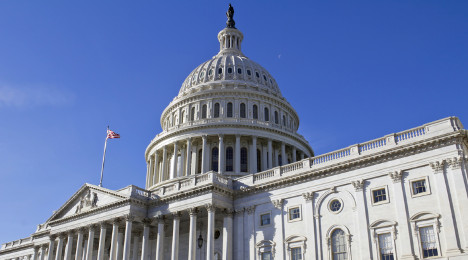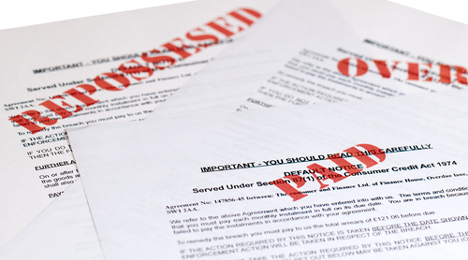Representatives from six different captive finance companies, two other institutions at or near the top of quarterly market share rankings as well as dealerships and other service providers are among the 89 members of the spring 2016 graduating class that successfully completed the National Automotive Finance Association’s Consumer Credit Compliance Certification Program.
With another graduating class expected to finish its work during Used Car Week, the NAF Association offers the Consumer Credit Compliance Certification Program to help finance companies and other stakeholders in the industry tackle the increasingly difficult challenge of complying with federal and state regulatory requirements.
The Certification Program is designed to provide the compliance professional with a solid working knowledge of the federal laws and regulations that govern consumer credit, together with a representative overview of state consumer credit law.
The program consists of four modules — two presented through an in-person classroom setting and two in an online format at the student’s own pace. Each module includes multiple sessions and each session provides a thorough outline and description of the applicable law or regulation. Each session is followed by an online test that must be passed to receive credit for the session.
NAF Association officials are organizing another opening in-person module just as autumn arrives. The session is set for Sept. 22 and 23 at Dallas/Plano Marriott at Legacy Towne Center in Plano, Texas. NAF Association is taking reservations for that module here.
And the NAF Association is hosting the closing module at the same site as the SubPrime Forum and Used Car Week, the Red Rock Resort and Casino in Las Vegas on Nov. 14-18. Program participants who have completed the first three modules can register for the closing segment here.
Here is the rundown of the 89 industry professionals who just completed their compliance training:
Brett Odom, Allied Solutions
Tasha Todd-Miller, American Credit Acceptance
Vonya Bickford, American Credit Acceptance
Robert Wu, American Honda Finance Corp.
Amy Mullins, Auto Credit of Southern Illinois
Jeremy Redeker, Auto Credit of Southern Illinois
Chelsea Hearting, AutoNow
Ryan Miller, AutoNow
Yolanda Mahan, BMW Financial Services
Jacob Martin, BMW Financial Services
Chris Mintz, Capital Auto Financial
Alan Chamblee, Carleton
Joe McTigue, Carleton
Nikki Bronk, Cars-N-Credit
Jose Hector Pulido, Citi Bank
Charles Lewis, Commonwealth Auto Credit
Jennifer Waters, Credit Care Financial
Pushan Sen Gupta, First Help Financial
Bob Blatz, FlexPath Capital
David Foreman, Foreman Financial
Heidi Turner, Frazer Computing
Kristin Karwat, Gateway Financial Solutions
Carol Petersen, Gateway Financial Solutions
Liz McPherson, GM Financial
Ryan Justice, GM Financial
William Green, Green Law
Jasmani Francis, Honor Finance
William Luby, Honor Finance
Dale Peterson, Horizon Digital Finance, dba myAutoloan.com
Grace Wu, Hyundai Capital America
Diane Binette, Hyundai Capital America
Vivian Change, Hyundai Capital America
Shawn Flowers, Hyundai Capital America
Denise Thomas, Hyundai Capital America
Paul Lynch, JJ Best & Co.
John Cienega, Kajen dba Loan Portfolio Servicing
Angela Cowan, Kajen dba Loan Portfolio Servicing
Rich Levene, KAR Auction Services
Nathan Jett, KAR Auction Services
Brad Carmack, Lowcountry Credit
Tammy Schweier, M&M Funding
Michelle Mallon, Michelle Mallon Attorney at Law
Geoff Pope, Millennium Capital and Recovery Corp.
Jerardo Martinez, Mullen Finance Plan
Tashebra Hooker, Nissan Motor Acceptance Corp.
Allison Cook, Nissan Motor Acceptance Corp.
Darrel Smith, Oklahoma Motor Credit
Sue Deeter, Red White and Blue Autos
Jose Arriaga, Santander Consumer USA
Sharon Carrington, Santander Consumer USA
Sarom Chin, Santander Consumer USA
Jennifer Garcia, Santander Consumer USA
Outhida Hatfield, Santander Consumer USA
Heather Hickman, Santander Consumer USA
Amber Huck, Santander Consumer USA
Raymond Ivey, Santander Consumer USA
Rachelle Johnson, Santander Consumer USA
Rob Lawson, Santander Consumer USA
Elizabeth Moore, Santander Consumer USA
Louise Nyamweya, Santander Consumer USA
Richard Sims, Santander Consumer USA
Debby Adair, Santander Consumer USA
April Atkins, Santander Consumer USA
Felicia Ford, Santander Consumer USA
Teresa Green, Santander Consumer USA
Danielle Martinez, Santander Consumer USA
Kori Townsend, Santander Consumer USA
Monika McManaway, Spartan Financial
Wayne Fortier, Stevenson Automotive Group
Heather Bowman, TEBO Financial Services
Erika Blankenship, Texas Auto Center
Mona Rodriguez, Texas Auto Center
Jamie Cluse, Toyota Financial Services
Ann Ferreri, Toyota Financial Services
Marty Lee, Toyota Financial Services
Madalena Nunes, Toyota Financial Services
Jonathan Goodman, TransUnion
Ricardo Rodriguez, United Quest Financial
Latramos Staton, United Quest Financial
RJ Naples, Veros Credit
Mirza Ahmed, Wells Fargo
Robert Lilly, Wells Fargo
Will Demouchette, Wells Fargo Bank
Carlos Perez, Wells Fargo Bank
Peggie Shuford, Wells Fargo Preferred Capital
Chris Schellman, Wells Fargo Preferred Capital
Gordon Uspal, Wells Fargo Preferred Capital
Charlenne Aglipay, Wells Fargo Preferred Capital
Linda Wilkinson, Wilco Finance
Jeffrey Marsh, Millennium’s chief business development officer, praised Pope’s achievement.
“Millennium is proud of Geoff’s dedication to excellence in compliance," Marsh said.
"Millennium is committed to being at the forefront of the industry and makes continuing investments to add value to our clients," Marsh went on to say.
The Congressional summer recess might just be rampimg up in earnest this week, but 38 Senate members and another 65 House lawmakers delivered a letter to Consumer Financial Protection Bureau director Richard Cordray to push through the agency’s plan to limit arbitration.
To recap, the CFPB made a proposal back in May that would prohibit mandatory arbitration clauses that the bureau said denies groups of consumers “their day in court.”
The bureau insisted many consumer financial products such as vehicle installment contracts, credit cards and bank accounts have “contract gotchas” that generally prevent consumers from joining together to sue their bank or financial company for wrongdoing. The CFPB believes these widely used clauses leave consumers with no choice but to seek relief on their own — usually over small amounts.
“With this 'contract gotcha,' the CFPB contends that finance companies can “sidestep” the legal system, “avoid accountability” and continue to pursue profitable practices that may violate the law and “harm” countless consumers.
The proposal generated immediate industry pushback.
The American Financial Services Association recollected that the CFPB released a study on arbitration last year. In the material, the bureau said consumers are harmed by arbitration agreements as opposed to class action lawsuits. However, AFSA insisted its careful review of the CFPB’s study demonstrated that the opposite is true — consumers are actually better served by arbitration agreements.
In 60 percent of class actions studied by the CFPB, consumers received no remuneration at all, according to AFSA’s analysis.
Nonetheless, these Senate and House members — primarily Democrats — are urging the CFPB to enforce its arbitration proposal.
“Every day, Americans across the country are forced to sign away their constitutional right to access the courts as a condition of purchasing common products and services like credit cards, checking accounts and private student loans,” the senators wrote in their letter that’s available here.
“To restore Americans’ access to justice and hold financial institutions accountable, we strongly support the CFPB’s proposal to preserve the ability of consumers to band together in class actions when seeking relief through the civil justice system,” they continued.
House members shared a similar refrain in their letter posted here.
“By restricting class actions and class-wide arbitration in consumer contracts, these clauses enable corporations to avoid public scrutiny by precluding access to the courts,” the House lawmakers said. “This is particularly problematic for small, diffuse misconduct that harms innumerous consumers.”
The House members encouraged Cordray to proceed quickly on the rule “to ensure that consumers have equal protection under the law.”
While BillingTree offered some first-hand assessments from attendees who were in Sacramento, Calif., for the Consumer Financial Protection Bureau’s field hearing after the agency released its debt collection regulatory proposal, SubPrime Auto Finance News also connected with a current member of the CFPB’s consumer advisory board to gather perspective on the implications on auto financing.
While the CFPB acknowledged it plans to “address first-party debt collectors soon, but on a separate track,” Joann Needleman explained there is plenty of material contained with the bureau’s rule proposal that finance companies should watch.
“I would tell any client who was an indirect lender who either collected their own debt or sent it out to somebody else, if you didn’t have policies and procedures and compliance systems in place within your entity, you are way behind the eight ball. You certainly have to do that. If you haven’t done it, then you need to do it now,” said Needleman, a partner at Clark Hill and leader of Clark Hill’s consumer financial services regulatory and compliance group.
Neeedleman, the immediate past president of the board of directors of the National Creditors Bar Association, has extensive litigation experience in state and federal courts, successfully defending creditors against claims brought under the Fair Debt Collection Practices Act and Fair Credit Reporting Act as well as state statutes. She provides counsel, consultation and litigation services to financial institutions, law firms and debt buyers throughout the country.
During a conversation Friday afternoon, Neeedleman elaborated on the position finance companies now have if they’ve deployed policies, procedures and compliance systems with regard to collecting on delinquencies or in connection with deficiencies if repossessions and recoveries are in motion.
“If you do have established procedures and policies in place, I think the proposal is a really good outline for you to tweak that infrastructure,” she said. “Ultimately in the proposed rules there may be some tweaks and changes, but I think the CFPB has given you a very clear hint of what are their priorities, what they ultimately would like to see, and I would strongly suggest that any auto finance company ensure those policies are procedures meet the CFPB’s objectives.
“There may be different ways to get from point A to point B,” Neeedleman continued. “But I think at the end of the day, if you’re ensuring that consumers are protected and you’re providing information to consumers when they need it, there are opportunities that when consumers have concerns you address them and you monitor your frequency when you communicate with consumers, I think you’re going to be fine.
“Then when the (first-party) rules come out, you’re not going to have to blow everything up and start again,” she went on to say.
Executives from BillingTree were part of the industry members keenly interested in what the CFPB proposed, which can be viewed here. In a blog post relayed to SubPrime Auto Finance News, BillingTree made three observations:
—The in-person audience was a mix of collection agency representatives, debt buyer representatives, attorneys, consumer advocacy groups, media and government staff.
—The mood of the hearing was civil; however, it was clear there were some who were pleased with the proposals and others who see them as potentially having a detrimental impact to their well-being.
—One commonality evident from those who spoke was the desire for clarity and definition of rules.
BillingTree then hosted a reception after the CFPB’s field hearing and collected more thoughts from attendees. Among some of the highlights:
—Everyone in attendance shared the same core values — treating consumers with dignity and ensuring compliance with the law.
—Use of automatic dialing systems and adopting technology today needs to happen.
—Collectors are professional. Criminals are the scammers. The two are not the same.
The attendee reference about automatic dialing systems touched on the segment about collections that Needleman described as the “game changer.” So much communication technology has become commonplace and simply didn’t exist when the when the Fair Debt Collection Practices Act was enacted in 1977. Needleman called it “disappointing” that technology was not addressed in more detail within the CFPB proposal that she was still reviewing when SubPrime Auto Finance News connected with her.
“Back in 1977, we had rotary phones, and that’s it. No Internet. No email. No text. No portals. No voicemail. The act does need to be modernized, and I think the regulators see that,” Needleman said.
“For whatever reason when the Fair Debt Collection Practices Act was enacted in 1977, Congress did not give the (Federal Trade Commission), which was the agency that had primary jurisdiction over the FDCPA, any rulemaking authority,” Needleman pointed out earlier in the conversation. “The industry has been forced to build compliance based on their own interpretation of the statute or interpretation by the courts, which has made it very difficult.
“I think in some ways the industry is kind of happy from a very high-level perspective that we will have rules and there will be bright-line ways of doing things. Again, the debate will be 'is what the CFPB proposing workable?'” she added.
Neeedleman mentioned it took the CFPB about three years to get to the rule-proposal stage. The customary comment period is now underway and organizations such as the American Financial Services Association, the Consumer Bankers Association, ACA International and DBA International are likely to respond with recommendations.
“From the industry perspective, I don’t think it was blindsided by these rules,” Needleman said. “People in the collection industry no matter what market you’re involved in, have pretty much been prepared and rules were coming.”
Reynolds and Reynolds continued to build its resources for dealerships by recently releasing the Reynolds LAW Utah F&I Library, which is a comprehensive catalog of standardized, legally reviewed finance and insurance (F&I) documents for franchised dealers throughout the state of Utah.
“Regulatory scrutiny will be a continuing and ever-present demand automotive retailers will have to face," said Jerry Kirwan, senior vice president and general manager of Reynolds Document Services. “In response, we’ve developed the LAW Utah F&I Library as one more tool dealers can use to meet compliance obligations and reduce risk.
“The documents in the library are regularly reviewed for compliance with the latest automotive regulations by Reynolds' industry-leading forms specialists alongside Reynolds' outside legal partners,” Kirwan continued.
In addition to helping to minimize compliance risk, Kirwan noted that the documents in the library are designed to streamline the vehicle-buying process and enhance the consumer experience with the dealership. Because the documents are written in consumer-friendly language, they can help to create a clearer, more efficient F&I process for the consumer.
By increasing the efficiency of the F&I process, the overall consumer experience with the dealership can be improved.
The printed documents in the LAW Utah F&I Library also are available in a digital format, which can help facilitate the conversion to laser-printed transactions and e-contracting. Reynolds Document Services maintains licensing agreements with all major providers of electronic F&I (e-F&I) solutions.
Now along with Utah, Reynolds has libraries for:
— Alabama
— Arizona
— Arkansas
— California
— Colorado
—Idaho
— Illinois
— Kentucky
— Louisiana
— Maryland
— Massachusetts
— Michigan
— New Jersey
— New Mexico
— North Carolina
— Ohio
— Oregon
— Pennsylvania
— Tennessee
— Texas
— Virginia
— Washington
— West Virginia
In what might be a positive development for auto finance companies, both the American Financial Services Association and the Consumer Bankers Association picked up on the same segment of the debt collection regulatory proposal the Consumer Financial Protection Bureau unveiled on Thursday. It’s a point CFPB director Richard Cordray made during the first half of his prepared remarks at a field hearing the bureau hosted to discuss the proposal in more detail.
“As part of our overhaul, we also plan to address first-party debt collectors soon, but on a separate track,” Cordray told the gathering in Sacramento, Calif., that included more than a half dozen CFPB officials as well as industry representatives and consumer advocates.
“The basic principles of the proposals we are considering are grounded in common sense,” he continued. “Companies should not collect debt that is not owed. They should have more reliable information about the debt before they try to collect. They would have to limit the number of attempts to make contact and should give consumers better information and more control over the process.
“Collectors also would have to make it easier for consumers to pursue disputes, and they would be barred from collecting on disputed debt that lack proper documentation. These same requirements would follow along with any debts that are sold or transferred to another collector,” Cordray went on to say.
Making the differential between first-party and third-party activities drew positive reactions from both AFSA and CBA.
“All AFSA member companies are first-party collectors and thus are not affected by this rule,” AFSA said in a statement sent to SubPrime Auto Finance News. “We’re pleased that the CFPB has made the important distinction between first and third-party collectors.
“It seems that the bureau may be proposing a rule down the line for first-party collectors,” the organization continued. “AFSA will continue to work to protect the activities of AFSA members if such a rule should be proposed in the future.”
Meanwhile, Richard Hunt, president and chief executive officer of the Consumer Bankers Association, appears poised to do the same thing as AFSA.
“We appreciate the bureau’s efforts to tailor these rules and set clear expectations for consumers and industry,” Hunt said in a statement distributed by CBA. “The bureau recognizes the importance of distinguishing between first-party creditors and third-party collectors in their rulemaking process. This is important because the facts are clear: Consumers have very different experiences when dealing with banks as opposed to debt collectors.
“Over the next few weeks, our team will do a deep dive into the study and the outline to better gauge the impact on our customers. We look forward to further dialogue with the bureau to make sure all of us get this right,” Hunt went on to say.
And at the event, DBA International’s executive director Jan Stieger wasn’t a part of the panel discussion, but she took the opportunity to speak during the public comment segment of the hearing. DBA International is the nonprofit trade association that operates in Sacramento and represents more than 550 companies that purchase or support the purchase of performing and non-performing receivables on the secondary market.
“It’s DBA’s philosophy and we are truly committed to working with regulators and other policymakers at the state and federal level to ensure that new laws and regulations provide necessary consumer protections while not putting unnecessary barriers to the collection of legitimate debt,” Stieger said. An example, we have worked with the New York Department of Financial Services and their courts with the new rules they adopted in early 2015 as well as the California attorney general’s office and the legislature in crafting the passage of the California Fair Debt Buyers Act of 2013. I’m proud to say DBA was in support of that legislation.
“We have worked across the aisle and with many of the consumer groups represented on the panel to work our solutions to the issues,” she continued. “It was in the spirit of wanting to ensure consumer protection that DBA launched our certification program in 2013, a robust program with over 20 best practices, gold standards, that in most cases exceed current law at both the state and federal level.
“While we didn’t have a lot of time to look at the proposal that came out, I will say that a quick look reveals that most of the DBA standards that are in our certification program match very nicely with the proposal from the CFPB,” Stieger went on to say.
“DBA has worked closely with the CFPB these last three years in the rule-making process and we look forward to continuing to work with the CFPB in the next steps and express our desire for the CFPB to continue to look at the DBA’s certification program for best practices in an effort to provide the best consumer protection while ensure the payment of legitimate debt.”
How finance companies and buy-here, pay-here dealerships execute one of their most important functions — collections — now potentially has six additional layers of compliance requirements stemming from the regulatory proposal rolled out by the Consumer Financial Protection Bureau on Thursday.
The CFPB explained its proposals under consideration would overhaul the debt collection market by capping collector contact attempts and by helping to ensure that companies collect the correct debt.
Under the proposals being considered, the bureau indicated debt collectors would be required to have more and better information about the debt before they collect. As they are collecting, companies would be required to limit communications, clearly disclose debt details and make it easier to dispute the debt.
When responding to disputes, the CFPB said collectors would be prohibited from continuing to pursue debt without sufficient evidence. These requirements and restrictions would follow the debt if it were sold or transferred.
“Today we are considering proposals that would drastically overhaul the debt collection market,” CFPB director Richard Cordray said. “This is about bringing better accuracy and accountability to a market that desperately needs it.”
6 debt collection protections
The CFPB reiterated debt collectors are already prohibited by federal law from “harassing, oppressing or abusing” consumers. The main law that governs the industry and protects consumers is the 1977 Fair Debt Collection Practices Act. In 2010, the Dodd-Frank Wall Street Reform and Consumer Protection Act revised that law, making the bureau the first agency with the power to issue substantive rules under the statute.
Bureau officials explained proposals under consideration would increase protections pertaining to third-party debt collectors and others covered by the Fair Debt Collection Practices Act, including many debt buyers.
As part of its overhaul of the debt collection marketplace, the CFPB plans to address consumer protection issues involving first-party debt collectors and creditors on a separate track. Specifically, the new protections are aimed at ensuring that debt collectors:
—Collect the correct debt: Collectors would have to scrub their files and substantiate the debt before contacting consumers. For example, collectors would have to confirm that they have sufficient information to start collection, such as the full name, last known address, last known telephone number, account number, date of default, amount owed at default, and the date and amount of any payment or credit applied after default.
—Limit excessive or disruptive communications: Collectors would be limited to six communication attempts per week through any point of contact before they have reached the consumer. In addition, if a consumer wants to stop specific ways collectors are contacting them, for example on a particular phone line, while they are at work, or during certain hours, it would be easier for a consumer to do that. The CFPB is also considering proposing a 30-day waiting period after a consumer has passed away during which collectors would be prohibited from communicating with certain parties, like surviving spouses.
—Make debt details clear and disputes easy: Collectors would be required to include more specific information about the debt in the initial collection notices sent to consumers. This information would include the consumer’s federal rights. They would have to disclose to consumers, when applicable, that the debt is too old for a lawsuit. The proposal under consideration would also add a “tear-off” portion to the notice that consumers could send back to the collector to easily dispute the debt, with options for why the consumer thinks the collector’s demand is wrong. The tear-off would also allow consumers to pay the debt. The consumer could also verbally question the debt’s validity at any time, and prompt the collector to have to check its files again.
—Document debt on demand for disputes: If the tear-off sheet or any written notice is sent back within 30 days of the initial collection notice, the collector would have to provide a debt report — written information substantiating the debt — back to the consumer. The collector could not continue to pursue the debt until that report and verification is sent.
—Stop collecting or suing for debt without proper documentation: If a consumer disputes — in any way — the validity of the debt, collectors would have to stop collections until the necessary documentation is checked. Collecting on debt that lacks sufficient evidence would be prohibited. In addition, collectors that come across any specific warning signs that the information is inaccurate or incomplete would not be able to collect until they resolve the problem. Warning signs could include a portfolio with a high rate of disputes or the inability to obtain underlying documents to respond to specific disputes. Collectors also would be required to check documentation of a debt before pursuing action against a consumer in court. For example, collectors would have to review evidence of the amount of principal, interest, or fees billed, and the date and amount of each payment made after default.
—Stop burying the dispute: If debt collectors transfer debt without responding to disputes, the bureau pointed out the next collector could not try to collect until the dispute is resolved. The proposals under consideration also outlined information that collectors would have to send when they transfer the debt to another collector so that a consumer does not have to resubmit this information to the new collector.
The outline of the proposals under consideration can be found here.
Five years ago today, the Consumer Financial Protection Bureau “opened our doors,” a milestone the regulator highlighted on its website. The Dodd-Frank Act that created the CFPB receives its operational funding the Federal Reserve, which literally can print money.
As a result, dealerships and finance companies have had to add compliance to their operating lexicon with the same frequency and importance as down payments, inventory, originations and securitizations. Some industry leaders and lawmakers have questioned the CFPB’s regulatory methodologies and enforcement actions since coming into the fray on July 21, 2011. But it’s certainly apparent the CFPB is here to stay in the auto financing space, and the players in it continue to adjust how to operate within the bureau’s reach.
To get some perspective on what these past five years have been like, SubPrime Auto Finance News reached out to a wide array of sources, including legal sage Tom Hudson, founding partner of Hudson Cook.
“Before the CFPB came into existence, the federal cop for enforcing most federal consumer protection laws was the Federal Trade Commission,” Hudson said. “The FTC, with a smaller staff than the CFPB, was charged with overseeing all businesses, not just creditors, and not just car dealers. The CFPB’s narrower focus and deeper 'bottomless' pockets have made for a much more intense regulatory and enforcement climate.
“Surprisingly, the laws and regulations that (apply to) dealers, finance companies and other creditors didn’t suddenly get bigger when the CFPB was formed,” he continued. “Most of the CFPB enforcement actions have dealt with allegations of violations of laws that have been around for decades — the Truth in Lending Act, the Equal Credit Opportunity Act, the Fair Credit Reporting Act and others.
“The difference we are seeing arises from the fact that the thinly-spread, underfunded FTC simply didn’t have the resources to launch a vigorous enforcement effort. The CFPB has those resources, and they’re using them,” Hudson went on to say.
To celebrate its fifth birthday, the CFPB mentioned some of its accomplishments in the video available here and at the top of this page with the resources Hudson referenced. Those marks include $11.7 billion in relief for more than 27 million consumers, figures that involved not only auto financing but also credit cards and mortgages.
At the controls of the CFPB is a single director — Richard Cordray — who President Obama appointed at the outset of the bureau’s opening. Someone who knows Cordray well is Shaun Petersen, who now is senior vice president of legal and government affairs at the National Independent Automobile Dealers Association. Petersen spent seven years in the Ohio Attorney General’s office and often crossed paths with Cordray, who eventually became the Buckeye State’s top law enforcement official before overseeing the CFPB.
Petersen previously described Cordray as one of the most intelligent individuals he’s ever encountered. In fact, Cordray has appeared multiple times and won several rounds on the popular game show “Jeopardy!”
“Although the CFPB might be the brainchild of Sen. Elizabeth Warren, it is clear director Cordray’s fingerprints are all over the CFPB,” Petersen said. “How can they not be when he is the sole director of an agency that is virtually insulated from congressional and presidential oversight?
“The fact that the director personally speaks at field hearings, signs consent decrees and testifies to Congress on these issues is a sign of his personal involvement,” Petersen continued. “When it comes to the bureau’s work with auto finance (or other topic areas), nothing gets done without the director’s blessing.”
Cordray is on tap to appear at the next CFPB field hearing. The bureau scheduled the event for next Thursday in Sacramento, Calif., where the topic will be one that’s been quite prevalent with its consumer complaint database — debt collections.
Along with discrepancies on a credit report, CFPB officials emphasized that debt collection is a consumer issue that they want to tackle. Digital Recognition Network chief executive officer Chris Metaxas highlighted what the prudent moves some auto finance companies are making and the areas involving collections where some institutions could improve.
“The key to effective commerce is knowing your customers. That means you need to stay close to them during their entire lifecycle experience with you,” said Metaxas, who will be making one of the keynote presentations during this year’s SubPrime Forum, where DRN is the presenting sponsor for that segment of Used Car Week.
“The mistake that lenders make is that they are reactive to a point in time,” he continued. “During origination, they scramble to get data to close the opportunity, and during collection they scramble to find you when the data was not up to date.
“That’s why smart lenders are now deploying location intelligence data, like vehicle sightings from DRN, throughout the entire lifecycle of the loan, so they can stay close, communicate frequently and adapt with you to help avert payment challenges,” Metaxas went on to say. “Location intelligence data simply lets lenders know more about their customers to improve their experience.”
The experience for finance companies since the advent of the CFPB certainly has been noteworthy. The bureau made enforcement actions against Ally Financial, American Honda Finance, Fifth Third Bank and more institutions in the auto finance space.
The industry certainly has pushed back, too. For example, the American Financial Services Association tapped Charles River Associates to open its string of rebuttals to contentions by the CFPB about problems with the indirect auto financing process.
The National Automotive Dealers Association has been vocal, as well — most recently with current chairman Jeff Carlson calling for support for measures currently circulating on Capitol Hill to “tame” the CFPB.
While the industry continues to navigate the regulatory demands of the CFPB, entities such as AFSA are looking toward what might happen during the next five years and beyond.
“Obviously, there are so many things that make the CFPB different from other agencies: its structure, its funding mechanism, its enforcement actions in lieu of clear-cut universal rules, etc.,” AFSA spokesperson Jack Ferry said.
“We are in constant dialogue with the CFPB on behalf of our members who are in the auto financing industry and the traditional installment industry. The lines of communication between the CFPB and AFSA are always open,” Ferry added.
And Petersen chimed in again on the dealership side.
“Part of NIADA’s core mission is to educate its dealers on the impact of laws from Congress and regulations from federal agencies, whether that regulation is imposed through a formal rulemaking process or is dictated through advisory guidance or enforcement action, as the CFPB tends to do,” he said.
“I believe dealers are recognizing the impact the CFPB is having on the industry and can have on their dealerships if they are not vigilant,” he went on to say.
With the recent release of the Reynolds LAW Michigan F&I Library, Reynolds and Reynolds now offers a comprehensive catalog of standardized, legally reviewed finance and insurance (F&I) documents for franchised new-vehicle dealerships in 23 different states.
The latest to come online was, the Reynolds LAW Michigan F&I Library, was jointly developed by Reynolds Document Services and the Michigan Automobile Dealers Association (MADA). The library carries both paper-based and electronic formats of the forms.
“We anticipate that, as 2016 progresses, dealerships will continue to be challenged by increased regulatory demands as well as by consumers who are looking for a more rewarding retail experience when buying a car,” said Jerry Kirwan, senior vice president and general manager of Reynolds Document Services.
“The LAW Michigan F&I Library is one more example of the tools that Reynolds can provide dealers to help them respond to these business challenges directly and help them prepare for the coming age of electronic transactions,” Kirwan continued.
Kirwan added the documents in the LAW Michigan F&I Library are regularly reviewed for compliance with the latest automotive regulations. Reynolds’ forms specialists lead the review, in conjunction with Reynolds’ outside legal partners and representatives from MADA.
Kirwan noted that the documents in the LAW Michigan F&I Library are written in consumer-friendly language, which can help to create a more transparent and understandable F&I process and improve the customer experience.
In addition, by using standardized forms from the F&I Library, he said dealerships can achieve a more consistent and effective F&I process in every transaction.
In addition, the LAW Michigan F&I library also can help facilitate the conversion to laser-printed transactions or e-contracting, since the documents are available in both paper-based and electronic formats. Reynolds Document Services maintains licensing agreements with all major providers of electronic F&I (e-F&I) solutions.
Now along with Michigan, Reynolds has libraries for:
— New Mexico
— Idaho
— Kentucky
— Arkansas
— Arizona
— Oregon
— Colorado
— Tennessee
— Maryland
— North Carolina
— Louisiana
— Alabama
— Massachusetts
— Ohio
— California
— Illinois
— Pennsylvania
— West Virginia
— Washington
— Virginia
— Texas
— New Jersey
Auto Title Express, an operating unit of Cox Automotive brand Dealertrack, announced the grand opening of its new Louisiana location is set for Monday.
After more than 59 years serving the community, Auto Title Express is moving from its longtime Metairie, La., location at 3939 Veterans Blvd. to a larger, newly renovated, ground-floor space at 3445 North Causeway in Metairie.
“The new Metairie location will give Louisiana drivers a fast and efficient alternative to the DMV," said Amy Casey, director of Louisiana operations at Dealertrack. "Over the years, we have built a great relationship with the Metairie community and we are looking forward to continuing to serve residents for many more from this new location."
Auto Title Express locations have been providing notary and vehicle registration services to Louisiana drivers for nearly 60 years.
With locations in Alexandria, Baton Rouge, Houma, Lafayette, Monroe, Metairie and Shreveport, Auto Title Express is licensed and authorized by the state of Louisiana to provide driver’s license express services, including renewals, duplicates, and address correction/changes, handicap placards/hang tags and no insurance reinstatement.
With officials saying some auto finance companies “deceived” individuals in multiple ways, the Consumer Financial Protection Bureau recently tabulated that its supervisory actions during the first four months of the year uncovered “illegal activities” that led to approximately $24.5 million in restitution to more than 257,000 consumers.
The bureau’s report also highlighted issues CFPB examiners found through the agency’s examination of businesses not only in auto loan origination, but also debt collection, mortgage origination and small-dollar lending.
“This report highlights our ongoing work to address violations of the law and slipshod practices that endanger consumers,” CFPB director Richard Cordray said. “The bureau’s supervisors continue to perform more and better oversight of these financial markets, and their report gives the industry an opportunity to reflect on their practices before consumers are made to suffer harm.”
The 12th edition of Supervisory Highlights covers activities completed generally between January and April. The regulator went into its auto finance work in detail.
CFPB examiners determined that one or more auto finance companies “deceived” consumers into thinking their add-on product would fully cover the balance of a consumer’s loan in the event of the loss of their vehicle.
“In fact, the product covered less than the vehicle’s value,” the CFPB said.
Bureau examiners also said they found one or more auto finance companies “deceived” consumers about terms of a loan deferral, saying the only effect would be to extend the life of the loan and to accrue interest during the deferral.
“They didn’t tell consumers that subsequent payments would be applied to cover the interest earned on the unpaid amount from the date of the consumer’s last payment,” the bureau said. “This tactic could lead to the consumer paying more in finance charges than the lender originally disclosed.
“Examiners noted this practice broke the law regarding deceptive acts and practices,” the CFPB added.
Under the Dodd-Frank Wall Street Reform and Consumer Protection Act, the CFPB has authority to supervise certain nonbanks, including mortgage companies, private student lenders and payday lenders, as well as nonbanks the bureau defines through rulemaking as “larger participants.”
To date, the Bureau has issued rules to supervise the larger participants in the markets of consumer reporting, consumer debt collection, student loan servicing, international money transfers and auto finance.
Supervisory work during the first four months of 2016 in connection with debt sales also aided an enforcement action that returned nearly $5 million to consumers and imposed $3 million in civil money penalties, according to the CFPB.
The bureau went on to mention how often there was a failure to provide adverse action notices.
Under the Fair Credit Reporting Act, the CFPB emphasized consumers must be notified of any adverse action, such as denial of credit, based on information in a consumer report. Consumers must also receive information about the consumer reporting agency that produced the report, which would note that the reporting agency did not make the decision to take adverse action and cannot provide the consumer the specific reasons why it happened.
“Examiners found the violations were caused by a lack of appropriate training, and inadequate policies and procedures,” the CFPB said.
The latest CFPB report can be downloaded here.












